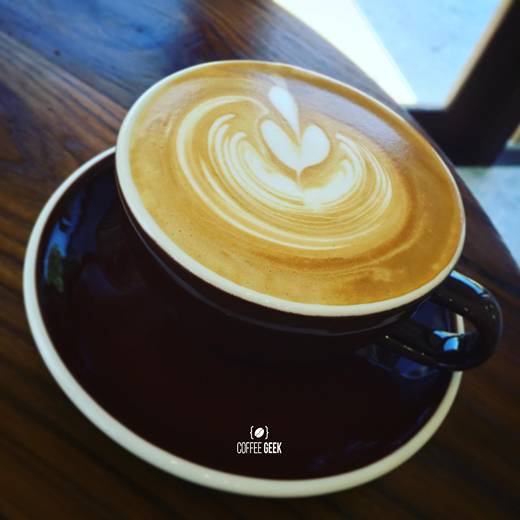Can coffee make you nauseous? It’s a common question with a simple answer.
So, yes, drinking coffee can make you feel nauseous.
But why does coffee make me nauseous? There are a few reasons. First, let’s talk about coffee and nausea.
Coffee is a drink that contains caffeine. Caffeine is a stimulant that can speed up your heart rate and make you feel more alert.
And too much coffee (caffeine) can also lead to side effects like anxiety, jitters, and nausea.
But there are also a few other reasons why coffee might make you nauseous. I’ll discuss this in detail in the article below.
Why Does Coffee Make Me Sick?
I remember the first time I ever felt sick from drinking coffee. I was in college and had just pulled an all-nighter to finish a paper.
The next morning, I was so exhausted that I decided to drink a cup of coffee to help me wake up. Big mistake. Within minutes, I was feeling nauseous. I had to run to the bathroom and throw up.
It was not a pleasant experience. Since then, I’ve learned that there are a few reasons why coffee can make you sick. Here’s what I’ve discovered:
1. Acid Reflux
What I didn’t realize at the time was that coffee can actually make acid reflux worse. Acid reflux is a condition where stomach acid rises up into the esophagus.
This can cause heartburn, chest pain, and nausea.
The pH of coffee ranges from 4.85 to 5.13, which is quite acidic. And since the stomach is already producing acid to digest food, adding more acid from coffee can make acid reflux worse.
You’ll likely feel a burning sensation in your chest and throat, and you may even vomit.
For those who suffer from acid reflux, especially those with gastroesophageal reflux disease (GERD), coffee consumption can be a trigger.
2. Drinking Coffee on an Empty Stomach
Another common reason why coffee can make you nauseous is that you drink it on an empty stomach. I know most of us are guilty of this.
We wake up in the morning, and the first thing we do is make a cup of coffee. But coffee on an empty stomach can actually irritate your stomach lining and make you feel nauseous.
Also, since coffee contains caffeine, it can stimulate gastric acid secretion, a fluid that helps you digest food. If produced in excess, gastric acid can also lead to abdominal distress and nausea.
3. Adding Milk and Sweeteners
Yes, even adding milk and sweeteners to your morning cup of joe can make you nauseous.
For those who are lactose intolerant, milky coffee can make you feel sick to your stomach.
Lactose is a type of sugar found in milk that some people have trouble digesting. When lactose is not digested properly, it can cause digestive issues like bloating, gas, and nausea.
So, if you’re lactose intolerant and you drink coffee with milk, you may experience nausea. In addition, adding artificial sweeteners to your coffee can also make you nauseous.
Sweeteners like aspartame and sucralose can cause digestive issues like bloating, gas, and nausea. So, if you’re adding these types of sweeteners to your coffee, you may want to reconsider.
4. Caffeine is a Diuretic
Caffeine is a diuretic, which means it causes you to excrete more water from your body.
When you drink coffee, the caffeine causes your body to flush out water from your digestive system. This can lead to dehydration, which can make you feel nauseous.
Dehydration can also cause other symptoms like headache, dizziness, and lightheadedness.
5. You’re on Medication
Certain medications can interact with coffee and cause side effects like nausea.
For example, antibacterial medications like Cipro and Flagyl can interact with coffee and cause nausea.
Other medications that can cause coffee-related nausea to include:
- Antidepressants
- Asthma medications
- Blood pressure medications
- Birth control pills
- Chemotherapy drugs
If you’re on medication, be sure to check the label for possible coffee interactions. You may also want to talk to your doctor about whether or not coffee intake is safe for you.
How to Get Rid of Coffee Nausea
If you’re feeling nauseous after drinking coffee, there are a few things you can do to feel better.
Drink Plenty of Fluids
As I mentioned earlier, coffee is a diuretic, which means it can cause dehydration.
One of the best ways to get rid of coffee-induced nausea is to stay hydrated.
Drink plenty of fluids, like water, throughout the day.
You can also drink other non-caffeinated beverages like herbal tea or fruit juice.
Eat Something
Let’s face it, most of us don’t eat breakfast before we have our morning cup of strong coffee.
But eating something can help settle your sensitive stomach and make you feel less nauseous.
Try eating a light breakfast like toast or oatmeal before you drink coffee. You can also eat a snack mid-morning to help stave off nausea.
Drink Coffee Brewed with Low Acid Beans
Since caffeine stimulates gastric acid secretion, it’s best to avoid coffee if you’re prone to stomach pain or nausea.
But if you are like me and can’t start your day without coffee, try switching to a low-acid coffee bean.
Low acid coffee beans are less likely to irritate your stomach and cause nausea. Some of the options include:
- Dark roast coffee
- Decaf coffee
- Cold-brew coffee
All of these options have a lower acid content than regular coffee beans.
Avoid Artificial Creamers
If you’re adding artificial creamers and sweeteners to your coffee, try switching to a natural alternative.
There are many all-natural milk alternatives that are lactose-free and won’t upset your stomach.
There are also natural sweeteners like honey and maple syrup that won’t cause digestive issues.
Limit Your Caffeine Intake
If you find that coffee makes you nauseous, try cutting back on your caffeine intake.
You don’t have to give up coffee entirely, but try limiting yourself to one cup per day.
You can also switch to decaf coffee or tea to help reduce your caffeine intake.
Final Thoughts
Coffee is a morning staple for many of us, but it can sometimes cause nausea. If you find that coffee makes you nauseous, the tips above can help you enjoy your cup of joe without feeling sick.
Ready to cut back on your caffeine intake? Check out my guide to the best decaf coffees.
FAQs
Can Coffee Make You Vomit?
Yes, coffee can make you vomit if you drink too much or if you have a sensitivity to caffeine. Drinking on an empty stomach can make you more prone to feeling nauseous and can even lead to vomiting. If you have a sensitivity to caffeine, even one cup of coffee can make you nauseous.
Can Coffee Make You Nauseous When Pregnant?
Yes, coffee can make you nauseous when pregnant. During pregnancy, your body is more sensitive to the effects of caffeine. Caffeine can also contribute to nausea and vomiting during pregnancy. If you’re pregnant, it’s best to limit your caffeine intake to 200 mg per day.
Can Coffee Cause Nausea and Diarrhea?
Yes, coffee can cause nausea and diarrhea. Coffee is a diuretic, which means it can cause dehydration.
It can also irritate your digestive system and lead to diarrhea. If you’re feeling nauseous and have diarrhea, it’s best to stay hydrated by drinking plenty of fluids. You can also try eating protein foods like yogurt or peanut butter to help slow down diarrhea.
Why Is Coffee Upsetting My Stomach?
There are several compounds in coffee that can irritate your stomach, including caffeine and acids. Other additives like artificial sweeteners and creamers can also contribute to stomach upset. Caffeine is a stimulant that can increase gastric acid secretion and lead to stomach pain. The acids in coffee can also irritate your stomach lining and cause nausea. If you’re feeling sick after drinking coffee, it’s best to limit your intake or switch to a low-acid coffee bean.
Can You Have a Coffee Intolerance?
Yes, you can have a coffee intolerance. A coffee intolerance is different from a coffee allergy. With a coffee intolerance, you may feel nauseous, have stomach pain, or have diarrhea after drinking coffee.
On the other hand, a coffee allergy can cause a severe reaction called anaphylaxis. If you’re concerned that you may have a coffee intolerance, it’s best to speak with your doctor.









